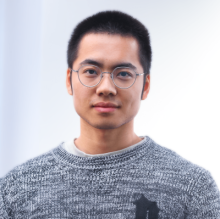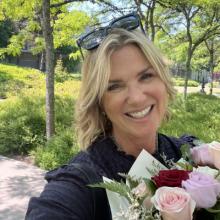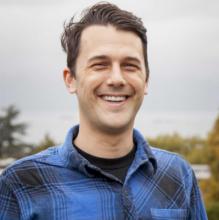Alicia's work investigates the impact of global policies seeking to prevent and prohibit the use of sexual violence in war on armed group practices of rape and other related offenses in conflict situations. Alicia will speak about her research on April 12 at (Re)searching for Social Justice.
Research Description
Alicia’s work looks at the effect of global efforts to eliminate gender-based violence (GBV) and promote gender equality in fragile and conflict-affected environments, with a focus on different forms of public authority in South Sudan, including militias and gangs. Her research seeks to understand the ways in which international discourses and policies addressing GBV and gender equality in the midst of a crisis influence perceptions and practices on the ground where they are intended to have the greatest impact.
What does being a Public Scholar mean to you?
Being a public scholar means carrying out action-oriented research that seeks to bridge the traditional gap between academics and policymakers, utilizing research to inform practice on the real world issues that matter most to today’s PhD students. I want to use my research to unite theory and praxis, investigating the effectiveness of international policies and programmes on the elimination of GBV in situations of conflict.
In what ways do you think the PhD experience can be re-imagined with the Public Scholars Initiative?
I think the PhD experience could be re-imagined to emphasize the real world engagement of today’s young scholars, encouraging PhD students to think more critically about the practical implications of their research and what they can learn from wearing “multiple hats.” I know that my approach to research and my PhD more generally has been greatly informed by my work in the humanitarian and development sectors and I don’t think I would be where I am without the experiences and partnerships that I fostered as a result of that work.
How do you envision connecting your PhD work with broader career possibilities?
Young people more than ever before have the opportunity to re-envisage different, non-traditional career paths. We don’t have to be exclusively academics, or exclusively policymakers. As others have done before us, we can do both and that’s exactly where I see myself. I hope to be able to continue carrying out high-level research, while I continue my work in the humanitarian and development sectors.
How does your research engage with the larger community and social partners?
Because I was fortunate enough to have worked in the humanitarian and development sectors over the past number of years I have a network of local, regional and international partners who I continuously consult with in the course of my research. I have also made a point of continuing to work for humanitarian and development organizations, including the UN during my PhD so that I can use my research and expertise to inform policies and programmes for preventing and responding to GBV.
Why did you decide to pursue a graduate degree?
Having worked in the humanitarian and development sectors in places like South Sudan, Somalia and Uganda over the past five-plus years I recognize the importance of research to well-informed intervention strategies and I felt that pursuing a graduate degree was the best way that I could contribute to ongoing policy discussions about eliminating GBV and promoting gender equality.
Why did you choose to come to British Columbia and study at UBC?
It was really the diversity of UBC’s campus that attracted me most. UBC embraces interdisciplinary and multifaceted research that doesn’t confine itself to disciplinary boundaries. Coming to UBC I felt I had an opportunity to think critically and creatively about issues of sexual violence in conflict, drawing on multiple theoretical and methodological traditions to address those issues in an impactful way.
I want to use my research to unite theory and praxis, investigating the effectiveness of international policies and laws on armed group practices of sexual violence in war".




